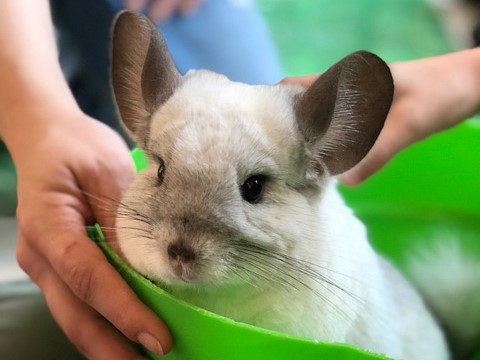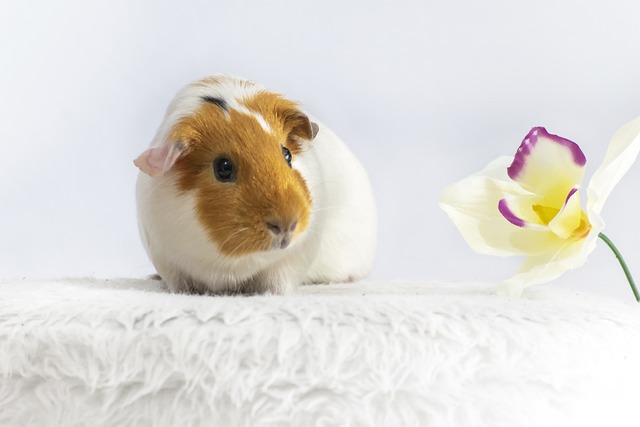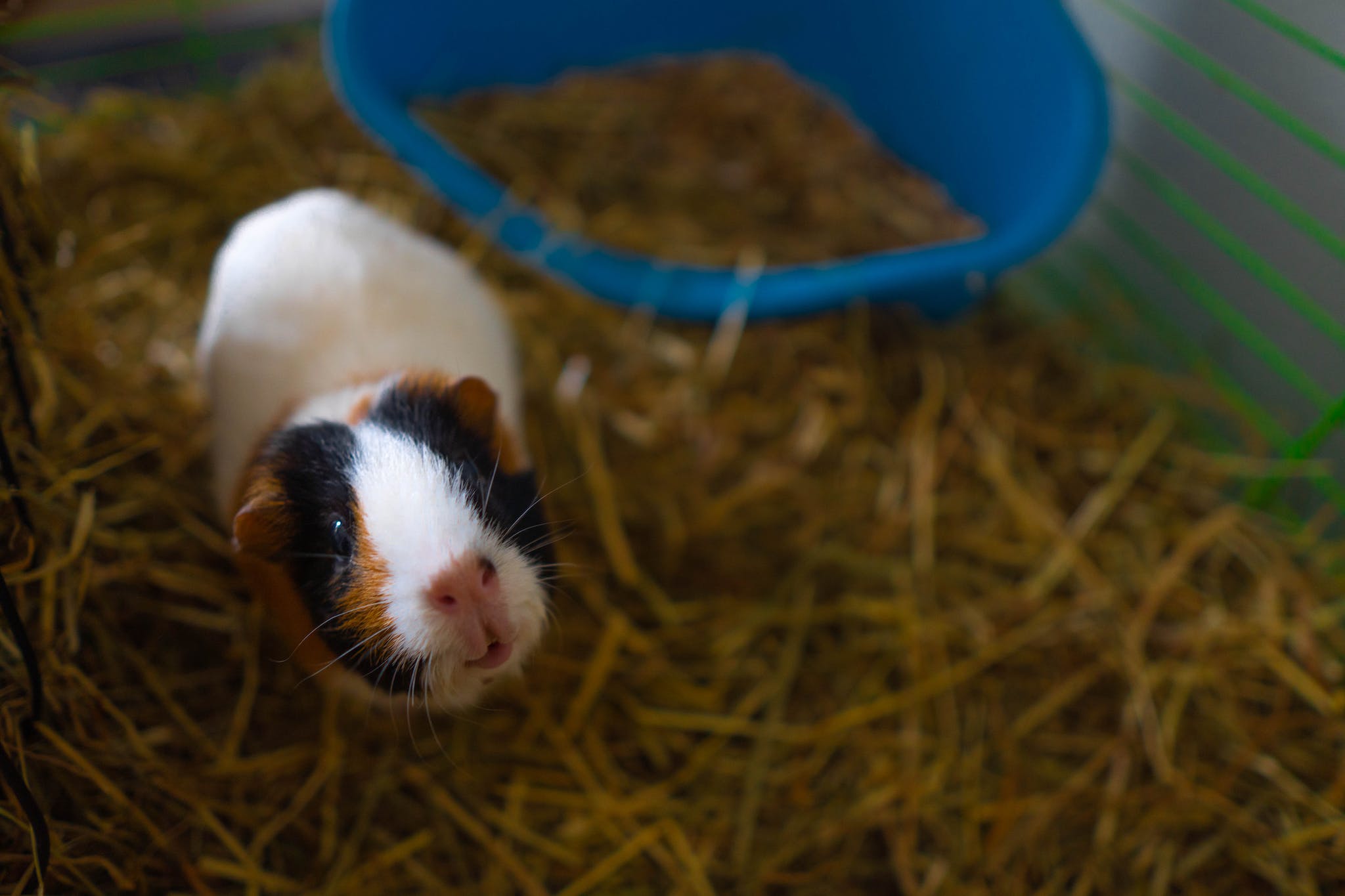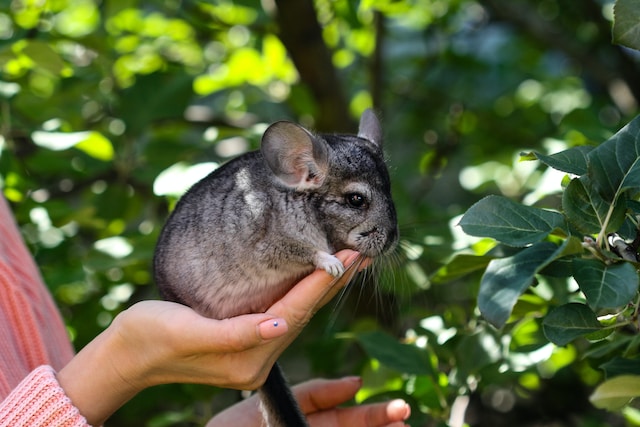Can Guinea Pigs Eat Grass Outside?
There are some affiliate links below, but they are all products I highly recommend. For more info, view my disclosure here.
If you’re a guinea pig owner, you might be wondering if it’s safe to let your piggie eat fresh grass outside. After all, guinea pigs are herbivores and require a diet that’s high in fiber. While it’s true that fresh grass can be a healthy addition to your guinea pig’s diet, there are a few things you should consider before letting them graze in the great outdoors.

First and foremost, you’ll want to make sure that the grass your guinea pig is eating is free from pesticides and other harmful chemicals. If you’re unsure about the safety of the grass in your yard, it’s best to err on the side of caution and stick to feeding your guinea pig hay and fresh vegetables.
You’ll want to supervise your guinea pig while they’re outside to ensure they don’t accidentally ingest any toxic plants or other hazards. Overall, while fresh grass can be a nutritious snack for your guinea pig, it’s important to take the necessary precautions to keep them safe and healthy.
Benefits of Fresh Grass in a Guinea Pig’s Diet

If you have a guinea pig, you might be wondering if it’s safe to let them eat grass outside. The good news is that fresh grass can be a healthy addition to your guinea pig’s diet. Here are some benefits of including fresh grass in your guinea pig’s diet.
Vitamin C and Nutritional Value
Guinea pigs require a daily intake of vitamin C, and fresh grass is an excellent source of this essential nutrient. In addition to vitamin C, fresh grass also contains other essential vitamins and minerals that are important for your guinea pig’s overall health and well-being.
Digestive Health and Dietary Fiber
Fresh grass is an excellent source of dietary fiber, which is essential for your guinea pig’s digestive health. Fiber helps to keep your guinea pig’s digestive system functioning properly and can prevent digestive problems such as constipation and diarrhea.
Natural Grazing and Dental Health
Guinea pigs are natural grazers, and fresh grass provides them with an opportunity to engage in this natural behavior. Grazing on fresh grass can also help to keep your guinea pig’s teeth healthy and prevent dental problems such as overgrown teeth.
Overall, fresh grass can be a healthy addition to your guinea pig’s diet. However, it’s important to make sure that the grass is free from pesticides and other harmful chemicals. You should also introduce fresh grass slowly and in small amounts to avoid digestive upset.
Choosing the Right Type of Grass
When it comes to feeding your guinea pig grass, it is important to choose the right type of grass. Not all grass varieties are safe for guinea pigs, and some can even be harmful to their health. In this section, we will discuss safe grass varieties for guinea pigs and grass to avoid.
Safe Grass Varieties for Guinea Pigs
- Timothy Hay: Timothy hay is a popular choice for guinea pig owners. It is high in fiber and low in calcium, making it a great choice for maintaining digestive health. Timothy hay is also readily available at most pet stores and online.
- Orchard Grass: Orchard grass is another safe option for guinea pigs. It is similar to Timothy hay in terms of nutritional value and is also widely available.
- Cat Grass: Cat grass is a type of grass that is safe for guinea pigs to eat. It is high in fiber and can help with digestion. Cat grass is also easy to grow at home, making it a convenient option for guinea pig owners.
Grass to Avoid
- Bermuda Grass: Bermuda grass is not safe for guinea pigs to eat. It is high in oxalates, which can cause bladder stones and other health problems in guinea pigs.
- Legume Hay: Legume hay, such as alfalfa hay, is not recommended for guinea pigs. It is high in calcium and protein, which can lead to urinary tract problems and other health issues.
When choosing grass for your guinea pig, it is important to read the labels and do your research. Stick to safe grass varieties such as Timothy hay, orchard grass, and cat grass, and avoid grasses like Bermuda grass and legume hay. By choosing the right type of grass, you can help ensure your guinea pig stays healthy and happy.
Risks of Outdoor Grass and Precautions
When it comes to offering grass to your guinea pigs, it’s important to be aware of the potential risks that come with outdoor grass. Here are some precautions you should take to ensure your guinea pigs stay safe:
Pesticides and Lawn Chemicals
Many homeowners use pesticides and other lawn chemicals to keep their grass looking healthy. However, these chemicals can be harmful to guinea pigs if ingested. Even small amounts of these chemicals can cause serious health problems, including respiratory issues and digestive problems.
To keep your guinea pigs safe, avoid offering them grass from lawns that have been treated with pesticides or other chemicals. Instead, consider growing your own grass in a controlled environment, such as a planter box or indoor garden.
Parasites and Infections
Outdoor grass can also harbor parasites and infections that can be harmful to guinea pigs. Wet grass, for example, can lead to fungal infections, while intestinal parasites and respiratory infections can be spread through contact with contaminated grass.
To minimize the risk of infection, make sure to offer your guinea pigs grass that is clean and dry. Avoid offering them grass that has been exposed to bird droppings or other animal waste, as this can also increase the risk of infection.
Weather and Environmental Conditions
Extreme temperatures can also be a risk when offering grass to guinea pigs. Grass that is too hot or too cold can cause health problems, including heatstroke and hypothermia.
To ensure your guinea pigs stay comfortable and healthy, offer them grass during mild weather conditions. Avoid offering grass during extreme temperatures, such as during the hottest parts of the day or during cold winter months.
By taking these precautions, you can help ensure that your guinea pigs stay safe and healthy when enjoying outdoor grass.
Feeding Practices for Outdoor Grass
If you’re planning to let your guinea pig eat grass outside, it’s important to follow some feeding practices to ensure their safety and health. Here are some tips to keep in mind:
How Much and How Often
When it comes to feeding your guinea pig grass, it’s important to remember that moderation is key. While they love to graze, too much grass can upset their digestive system and cause health problems. A handful of fresh garden grass once a day is a good amount to start with. You can gradually increase the amount of grass as your guinea pig gets used to it, but be sure to monitor their behavior and health.
Supervision and Safe Environments
When allowing your guinea pig to graze outside, it’s important to supervise them at all times. Make sure they are in a safe environment, free from any potential hazards such as poisonous plants or other animals. Keep them in a shaded area to avoid too much sun exposure, which can cause heatstroke. If you’re unsure about the safety of the grass in your yard, consider providing your guinea pig with a designated grass-eating area.
By following these feeding practices, you can ensure that your guinea pig is getting the right amount of grass in a safe and healthy environment. Remember to always monitor their behavior and health, and consult with a veterinarian if you notice any concerning symptoms.
Final Thoughts on Guinea Pigs and Grass
Grass is an important part of a guinea pig’s diet. It provides them with essential nutrients and fiber that keep their digestive system healthy. However, it’s important to ensure that the grass they eat is safe and free from harmful pesticides or chemicals.
A healthy diet for guinea pigs should consist of a variety of fresh vegetables, hay, and grass. Grass can be a great addition to their diet but should not be the only staple food they consume.
While there is no concrete evidence to suggest that grass is harmful to guinea pigs, it’s important to monitor their intake and ensure they don’t overeat. Overconsumption of grass can lead to digestive issues and diarrhea.
Grass can be a great addition to a guinea pig’s diet, but it should not be the only staple food they consume. Ensure that the grass they eat is safe and free from harmful pesticides or chemicals. Monitor their intake and provide a balanced diet consisting of fresh vegetables, hay, and grass.




